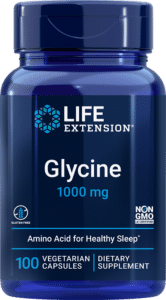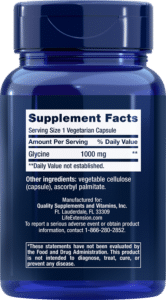April 2021



MONTHLY SPECIAL FOR APRIL 2021
(NOTE: SPECIAL OFFER ENDS APRIL 30, 2021)
Use discount coupon ‘CAFEDOCS35’ at checkout
to get ‘35% off’ product listed below.
‘Keep Calm and Carry on’ is advice given that is often easier said than done. Some of us take substances, including prescription medicines to become ‘calm’ but these do not allow us to ‘carry on’ so well. Unfortunately, in these difficult times, we are often in a state of anxiety, in what seems to be a never ending cycle of ‘fight or flight’ with nowhere to flee. This cycle produces negative stress that can prevent our getting a good night’s sleep. Research shows us that sleep is vital for brain health. The effects of not getting enough sleep are cumulative. And when we reach a state of chronic sleeplessness, our body, and particularly our brain, is affected.
The impact of chronic sleeplessness: Our brains consume the most energy of any of our organs. When we do not get enough sleep, our brains are not able to perform critical functions. Researchers have pointed out that the brain cells that are responsible for clearing out old and worn-out cells via a process called phagocytosis (to devour) appear to go overboard when we are sleep deprived (Bellesi, M. et al, 2017). When this regular clearing process occurs during sleep deprived states, the brain starts to harm
itself by ramping up the cleaning up of our healthy and strong synapses1 instead. So in addition to the effect we feel when we are chronically sleep deprived, we may be causing injury to our brain (Bellesi, M. et al, 2017).
The amino acid glycine, item #01669, may help you to achieve healthy quality sleep without causing daytime drowsiness (Bannai & Kawai, 2012; Bannai, et al, 2012). Research has shown that glycine may also have positive impacts on mood, cognition, and mental health (Chen, Y. et al, 2020; Peyrovian, B. et al, 2019; Neuro Biol Psy, 2013). In addition, glycine is needed for collagen production and has been shown to promote relaxation, healthy glucose and fructose metabolism, preserve normal muscle mass and promote healthy body composition.
Glycine is the simplest of all amino acids. It can be made by the body, but since it does not appear to always meet the body’s requirements, it is considered by some to be semi-essential (Biosci, J., 2009).
Vegans can gain glycine from soy products like tempeh, tofu and soy protein. Other sources are black beans, kidney beans; and seeds such as pumpkin, squash, sunflower, and chia. Sources from nuts include pistachio, peanut, and cashew.
To support you on your wellness journey, we are offering a Coupon Discount for 35% off the Café Doc listed price for Glycine, item #01669 for April 2021 (limit four per customer). This product offers calming sleep support as well as whole-body benefits.


healthy glucose & fructose metabolism and supports connective tissue throughout the body.
Note: A synapse is a ‘region’ or ‘junction’ where impulses from one nerve cell travel to another nerve cell. This is called neurotransmission. Synaptic strength is the degree by which neurotransmission happens, and this strength impacts the establishment of memory. Stress and chronic sleeplessness impact neurotransmission, thus, memory is affected.
References
Bannai, M. & Kawai, N. (2012). New therapeutic strategy for amino acid medicine: glycine improves the quality of sleep. Pharmacol Science, 118(2), 145-148. https://pubmed.ncbi.nlm.nih.gov/22293292/
Bannai, M., Kawai, N., Ono, K., Nakahara, K., Murakami, N. (2012, April). The effects of glycine on subjective daytime performance in partially sleep-restricted healthy volunteers. Frontiers in Neurology. https://www.frontiersin.org/articles/10.3389/fneur.2012.00061/full
Bellesi, M., de Vivo, L., Chini, M., Gilli, F., Tononi, G., Cirelli, C. (2017, May).
Sleep loss promotes astrocytic phagocytosis and microglial activation in mouse cerebral cortex. Journal of Neuroscience, 37(21) 5263-5273. https://www.jneurosci.org/content/37/21/5263 https://www.lifeextension.com/vitamins-supplements/item01669/glycine
Chen, Y., Lin, C., Alane, H. (2020). Survey of NMDA receptor-related biomarkers for depression. Current Pharmaceutical Design 26 (2) 228-235. https://doi.org/10.2174/1381612826666200122155206
Li, W., Sun, K., Ji, Y., Wu, Z., Wang, W., Dai, Z., Wu, G. (2016, May). Glycine regulates expression and distribution of claudin-7 and ZO-3 proteins in intestinal porcine epithelial cells. The Journal of Nutrition, 146(5), 964-969.
Peyrovian, B., Rosenblat, J., Pan, Z., Iacobucci, M., Brietzke, E., McIntyre, R. (2019). The glycine site of NMDA receptors: A target for cognitive enhancement in psychiatric disorders. Progress in Neuro Psychopharmacology and Biological Psychiatry, 92, 387-404.
https://www.sciencedirect.com/science/article/abs/pii/S0278584618307218
Woods, S., Walsh, B., Hawkins, K., Miller, T., Saksa, J., D’Souza, D., Pearlson, G., Javitt, D., McGlashan, T., Krystal, J. (2013). Glycine treatment of the risk syndrome for psychosis: Report of two pilot studies. European Neuropsychpharmacology, 23(8) 931-940.
https://www.sciencedirect.com/science/article/abs/pii/S0924977X12002726?via%3Dihub
